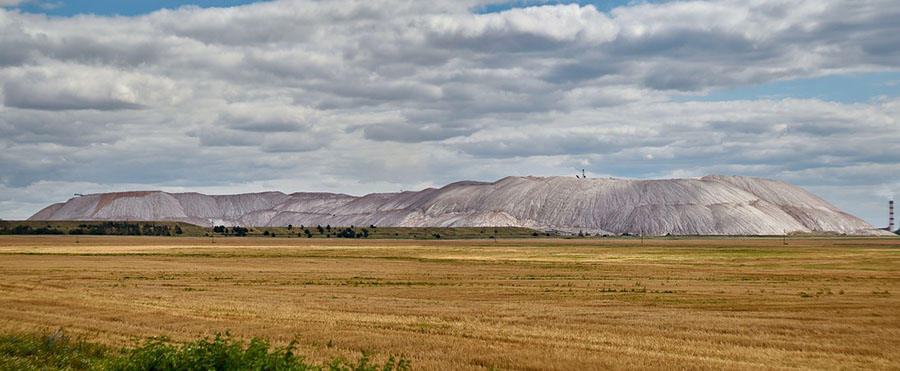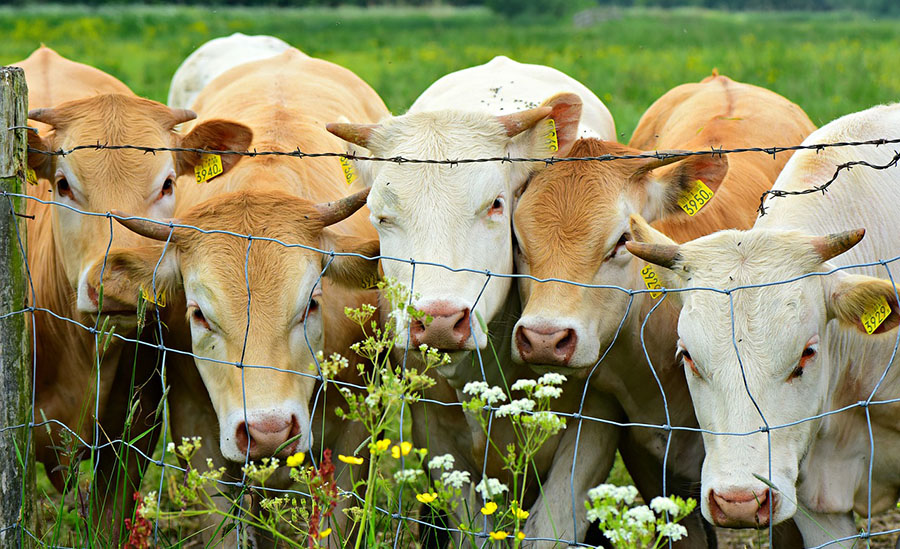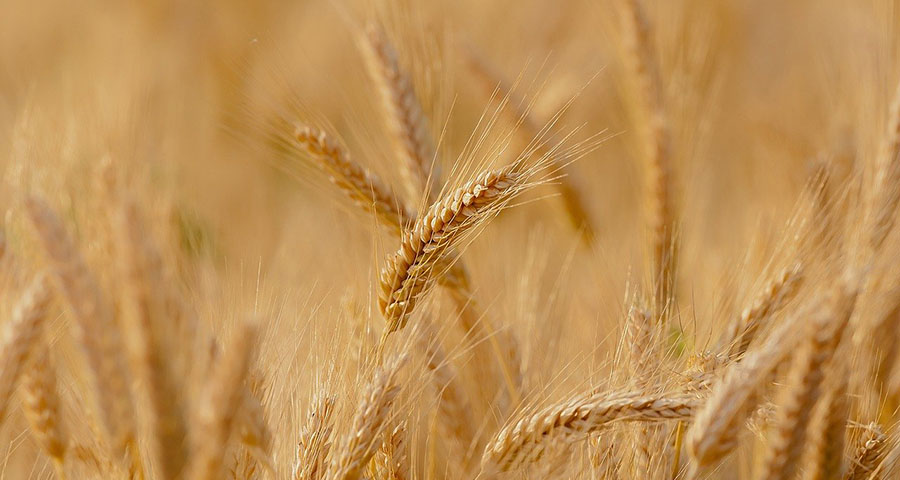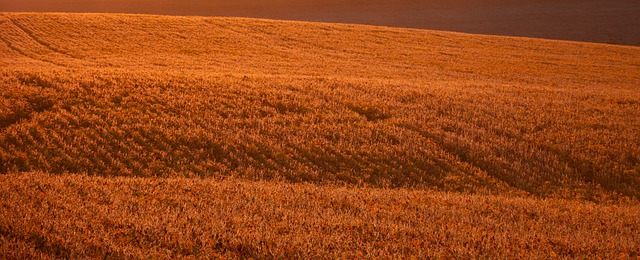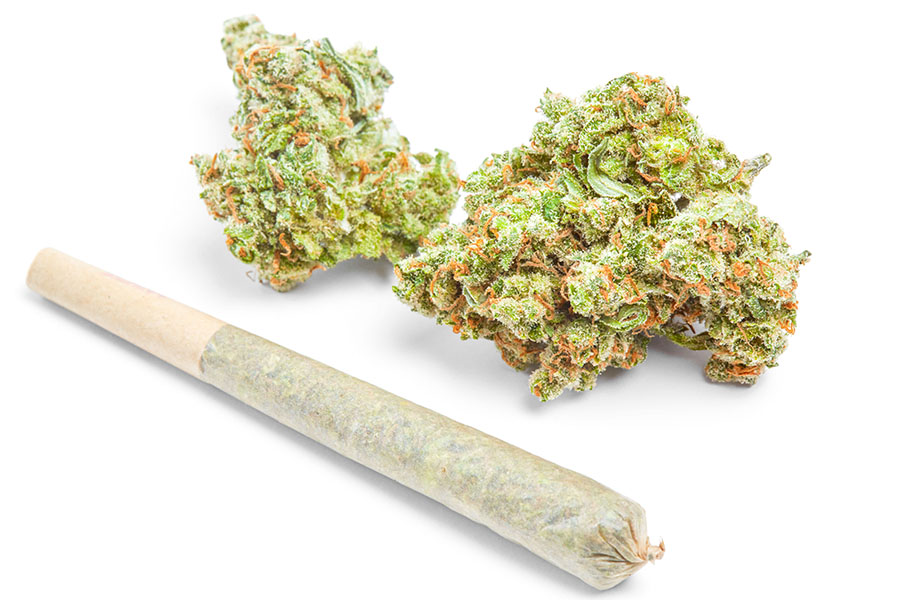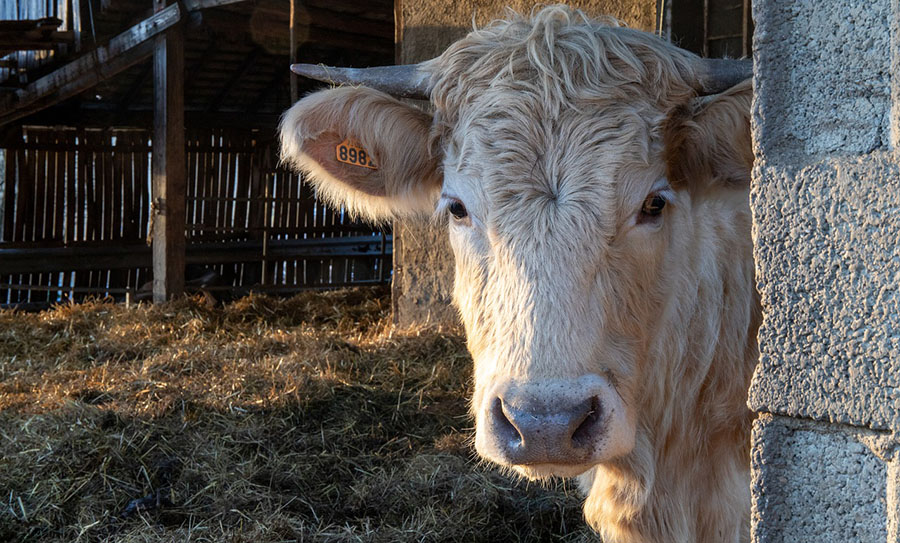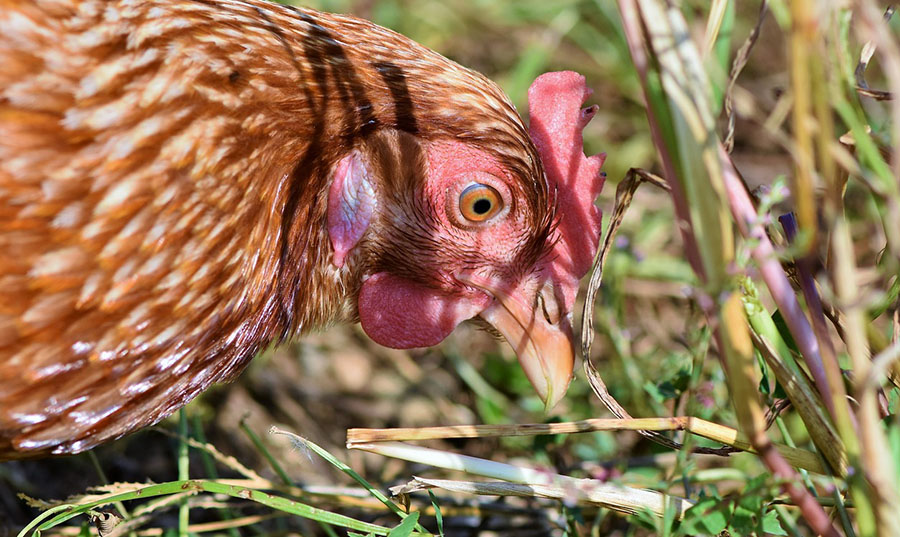Year in Review: Digging into Potash Stocks
Source: The Energy Report Editors (12/29/11)
People have to eat. That seemed to be the consensus of the markets in 2011, which saw potash gaining traction as a new kind of safe haven. A resource that promises higher crop yields in a time of exploding global population growth, potash is ripe with potential profits for investors who choose carefully. The Energy Report dug deeper into this sector in 2011, interviewing analysts and industry experts who shared how to gain exposure to this growing market.
Investing in agriculture can take many forms. Bob Moriarty, 321energy.com founder, shared his insights in a March article titled "Food Is Fuel." He said: "Potash is used to make fertilizer. As food gets more valuable, potash gets more valuable. It's not necessarily that you're more efficient in the production of food. If the price of wheat doubles, farmers can afford twice as much potash. It's not necessarily more efficient; it's just cheaper in relative terms. The price of food is going to go higher and higher. Potash is around $600/ton now, but it could be $1,500/ton based on the cost of food today."
The trend will not continue forever, Moriarty cautioned. "Most companies are going to fail. You have to be counter-cyclical. Potash was way too cheap. Companies couldn't afford to mine it profitably, and now it will overshoot in the other direction. I hope there is a bubble. That will be a tremendous opportunity to get out at a giant profit. We're not at the top for potash, but everything goes up and everything goes down."
Moriarty elaborated in a December article titled "Profit from Peak Oil", making the point that energy and food are directly related. "Potash is a form of energy. Food is a form of energy. To make more food, you need more energy and you need more potash. There are enormous potash deposits, basins of sedimentary deposits—basically a variation of salt—that date back tens of millions of years. We know where they are. They're easy to drill. A lot of people are going to make a lot of money in potash.
"You can bet on some things in the short term and others in the long term. I don't think anyone would conclude the cost of energy is going to go down over the long term, because there are no cheap energy sources. There is no magic bullet. So the cost of food is going to go up. I think any potash company would be a good investment right now. Real safe investments for 5, 10 or 15 years would be food, potash, water, oil and natural gas. Good shorter-term investments would be anything real—gold, silver, platinum and anything that you can actually hold in your hand."
Moriarty is not alone in his assessment of the agriculture industry. In a May story titled "Potash Prices Heading to $750," Richard Kelertas said:
"We believe the upward price pressure started after the economic crisis in 2009, and it could remain a substantial bull market until stocks:use ratios (carryover:total use) in most major food stocks—grains, corn, soy beans—can be brought back up to 10-year averages. Currently, the ratios are well below those averages. There doesn't seem to be any reprieve in sight, unless we have two to three years of bumper harvests in all grains around the world.
"In retrospect, 2009 was a tough year for a lot of fertilizer producers. Farmers had to delay applications, even though they started to see crop shortages followed by slowly rising crop prices. We didn't really see fertilizer-price recovery until 2010. Around March/April, or mid-2010, we started to see a pickup in fertilizer stock prices. It was slow at first and, in some cases, it has been muted; but at the beginning of 2011, it started to surge dramatically. Now it's come off again on the expectation that all commodity prices, including that of oil, will come off as the global economy slows down (especially in China). But our view is that this is just temporary, and that these stock prices don't really reflect anywhere near the fertilizer prices we are looking at in 18–24 months. So, these current stock prices are only reflecting mid-cycle, but nothing near peak prices.
"We won't see $1,000/ton. I don't expect the type of hoarding experienced back in 2007 and 2008 will happen again to the same degree. We certainly will get speculation; but, typically, the amount of cash that's available, the lending requirements and margin calls are more stringent than they were three years ago. You will probably see one-half of the speculative run-up in potash that we saw back in 2007. This time it is coming from actual supply/demand dynamics, not speculative investors gobbling up contracts. So, $1,000/ton?—I'll never say never, but I think the next peak we'll see is probably more in the $700–750/ton range. . .in the next 24 months."
For investors looking to get closer to the farm, Kevin Bambrough, founder of Sprott Resource Corp., suggested two private equity deals in a February article entitled "Fiat Currencies Are Worthless".
"We have two entities that are the hardest to value but potentially the most exciting assets. Right now, very little value is being given to them in the Resource Corp. share price but, eventually, their value could be very large. These are the One Earth companies—One Earth Oil & Gas Inc. and One Earth Farms Corp., both of which are private. One Earth Farms is something we started working on in 2007. It's taken a few years to get there, but we're very pleased that it'll be the largest farm in Canada and one of the largest farms in North America in 2011. It's also positioned to be one of the largest farms in the world in the coming years.
"One Earth Farms has synergistic cattle and grain operations. Its real goal is to change the typical farming model, wherein the average farmer buys retail and sells wholesale. By that, I mean he buys his equipment, fertilizer, etc., from a local dealer or store, and then sells his crop as a commodity at harvest time based on wholesale prices. With the size and scale we've already attained, we've established that we can buy wholesale. And now we're working on the model that can allow us to capture some of the retail margin by partnering with food processors or retail outlets. It's almost impossible to find good investments in the Ag sector, and there are very few corporate farms in which to invest around the world. We're building one that, hopefully, will provide inflation protection, as well as food security for potential investors and partners.
"By the way, One Earth Farms is, in our minds, the only way you can invest in Canadian farming in a large way. That's because it is in partnership with the First Nations groups of Canada, which are federally regulated and permitted to allow public companies and foreigners to lease land. Typically, non-First Nations lands in Manitoba and Saskatchewan are restricted under provincial law from public company ownership or leasing or foreign participation.
"I think that One Earth Farms is a company that ultimately will be highly valued and coveted by three different types of investors. First, large pension funds might find it very desirable for the inflation protection it could provide pension fund holders. Also, I think that the sovereign wealth funds and the Ag ministries of the world that are trying to get food security for their nations would find this to be very strategic. Lastly, we feel it would be valued by ordinary institutional and retail investors if it were publicly listed."
As more analysts and investors lose confidence in the dollar, marketproof alternatives are even more in demand. As Bambrough said at the end of his interview, "I think that we're going to come up with different monetary instruments that are reflective of precious metal or other holdings. Sooner or later, I envision we'll have a currency that may be reflective of a basket of commodities that we may trade in units tied to something tangible. Ultimately I think we could have an energy-based currency."
Want to read more exclusive Energy Report interviews like this? Sign up for our free e-newsletter, and you'll learn when new articles have been published. To see a list of recent interviews with industry analysts and commentators, visit our Exclusive Interviews page.
DISCLOSURE:
From time to time, Streetwise Reports LLC and its directors, officers, employees or members of their families, as well as persons interviewed for articles on the site, may have a long or short position in securities mentioned and may make purchases and/or sales of those securities in the open market or otherwise.
The trend will not continue forever, Moriarty cautioned. "Most companies are going to fail. You have to be counter-cyclical. Potash was way too cheap. Companies couldn't afford to mine it profitably, and now it will overshoot in the other direction. I hope there is a bubble. That will be a tremendous opportunity to get out at a giant profit. We're not at the top for potash, but everything goes up and everything goes down."
Moriarty elaborated in a December article titled "Profit from Peak Oil", making the point that energy and food are directly related. "Potash is a form of energy. Food is a form of energy. To make more food, you need more energy and you need more potash. There are enormous potash deposits, basins of sedimentary deposits—basically a variation of salt—that date back tens of millions of years. We know where they are. They're easy to drill. A lot of people are going to make a lot of money in potash.
"You can bet on some things in the short term and others in the long term. I don't think anyone would conclude the cost of energy is going to go down over the long term, because there are no cheap energy sources. There is no magic bullet. So the cost of food is going to go up. I think any potash company would be a good investment right now. Real safe investments for 5, 10 or 15 years would be food, potash, water, oil and natural gas. Good shorter-term investments would be anything real—gold, silver, platinum and anything that you can actually hold in your hand."
Moriarty is not alone in his assessment of the agriculture industry. In a May story titled "Potash Prices Heading to $750," Richard Kelertas said:
"We believe the upward price pressure started after the economic crisis in 2009, and it could remain a substantial bull market until stocks:use ratios (carryover:total use) in most major food stocks—grains, corn, soy beans—can be brought back up to 10-year averages. Currently, the ratios are well below those averages. There doesn't seem to be any reprieve in sight, unless we have two to three years of bumper harvests in all grains around the world.
"In retrospect, 2009 was a tough year for a lot of fertilizer producers. Farmers had to delay applications, even though they started to see crop shortages followed by slowly rising crop prices. We didn't really see fertilizer-price recovery until 2010. Around March/April, or mid-2010, we started to see a pickup in fertilizer stock prices. It was slow at first and, in some cases, it has been muted; but at the beginning of 2011, it started to surge dramatically. Now it's come off again on the expectation that all commodity prices, including that of oil, will come off as the global economy slows down (especially in China). But our view is that this is just temporary, and that these stock prices don't really reflect anywhere near the fertilizer prices we are looking at in 18–24 months. So, these current stock prices are only reflecting mid-cycle, but nothing near peak prices.
"We won't see $1,000/ton. I don't expect the type of hoarding experienced back in 2007 and 2008 will happen again to the same degree. We certainly will get speculation; but, typically, the amount of cash that's available, the lending requirements and margin calls are more stringent than they were three years ago. You will probably see one-half of the speculative run-up in potash that we saw back in 2007. This time it is coming from actual supply/demand dynamics, not speculative investors gobbling up contracts. So, $1,000/ton?—I'll never say never, but I think the next peak we'll see is probably more in the $700–750/ton range. . .in the next 24 months."
For investors looking to get closer to the farm, Kevin Bambrough, founder of Sprott Resource Corp., suggested two private equity deals in a February article entitled "Fiat Currencies Are Worthless".
"We have two entities that are the hardest to value but potentially the most exciting assets. Right now, very little value is being given to them in the Resource Corp. share price but, eventually, their value could be very large. These are the One Earth companies—One Earth Oil & Gas Inc. and One Earth Farms Corp., both of which are private. One Earth Farms is something we started working on in 2007. It's taken a few years to get there, but we're very pleased that it'll be the largest farm in Canada and one of the largest farms in North America in 2011. It's also positioned to be one of the largest farms in the world in the coming years.
"One Earth Farms has synergistic cattle and grain operations. Its real goal is to change the typical farming model, wherein the average farmer buys retail and sells wholesale. By that, I mean he buys his equipment, fertilizer, etc., from a local dealer or store, and then sells his crop as a commodity at harvest time based on wholesale prices. With the size and scale we've already attained, we've established that we can buy wholesale. And now we're working on the model that can allow us to capture some of the retail margin by partnering with food processors or retail outlets. It's almost impossible to find good investments in the Ag sector, and there are very few corporate farms in which to invest around the world. We're building one that, hopefully, will provide inflation protection, as well as food security for potential investors and partners.
"By the way, One Earth Farms is, in our minds, the only way you can invest in Canadian farming in a large way. That's because it is in partnership with the First Nations groups of Canada, which are federally regulated and permitted to allow public companies and foreigners to lease land. Typically, non-First Nations lands in Manitoba and Saskatchewan are restricted under provincial law from public company ownership or leasing or foreign participation.
"I think that One Earth Farms is a company that ultimately will be highly valued and coveted by three different types of investors. First, large pension funds might find it very desirable for the inflation protection it could provide pension fund holders. Also, I think that the sovereign wealth funds and the Ag ministries of the world that are trying to get food security for their nations would find this to be very strategic. Lastly, we feel it would be valued by ordinary institutional and retail investors if it were publicly listed."
As more analysts and investors lose confidence in the dollar, marketproof alternatives are even more in demand. As Bambrough said at the end of his interview, "I think that we're going to come up with different monetary instruments that are reflective of precious metal or other holdings. Sooner or later, I envision we'll have a currency that may be reflective of a basket of commodities that we may trade in units tied to something tangible. Ultimately I think we could have an energy-based currency."
Want to read more exclusive Energy Report interviews like this? Sign up for our free e-newsletter, and you'll learn when new articles have been published. To see a list of recent interviews with industry analysts and commentators, visit our Exclusive Interviews page.
DISCLOSURE:
From time to time, Streetwise Reports LLC and its directors, officers, employees or members of their families, as well as persons interviewed for articles on the site, may have a long or short position in securities mentioned and may make purchases and/or sales of those securities in the open market or otherwise.



